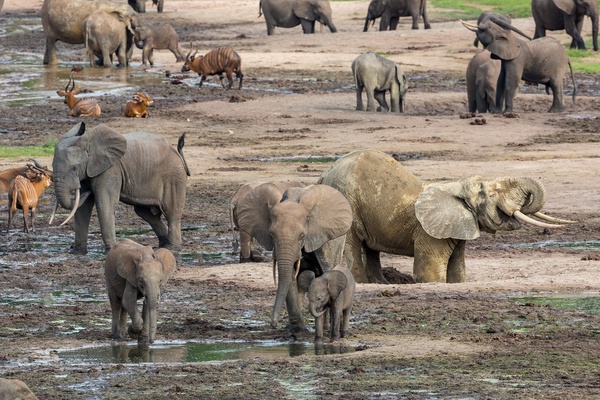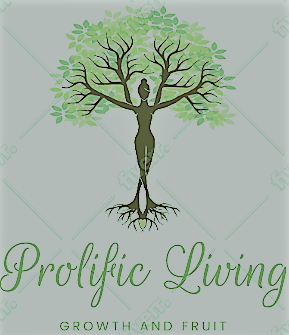Hello, I’m Peter
I live to enable people to align with their reality, one thought at a time

A Transpersonal psychologist, counselor, therapist, coach

I am comfortable working with individuals and groups. Please get in touch if you want someone to talk to or say hi.

Contact me: peterkimwere@gmail.com
-
Free fruits?

Many years ago in a village in the land of Banu there lived a boy called Garner. Garner enjoyed his youth with abandonment for he did not encounter any limitations. He had siblings at home and peers in the neighborhood with whom to explore and play. His parents were patient and willing to support his inclinations. Those older or those skilled taught either what one was required or desired to learn. The lessons did not have a specific schedule or venue but could take place when both parties were available and willing. This was also dependent on the seasons, events, and activities taking place at any given time. What caught his attention the most was when fruits were in season. Regardless of where in the neighborhood the fruits were, everybody had access to the fruits once ripe. One could pick what they could eat in one sitting. It made for quite a celebratory environment as everyone participated in this season of abundance. Nothing was stored as the different fruit trees tend to bear fruit at diverse times in the year. There was always something available depending on which fruit was in season. After all, this is how it has always been and it has worked wonderfully.
Fast forward and Garner left the village to go study in the modern world. He discovered a completely different world where everything is not only scarce but also has a clear structure and cost attached to its acquisition. Due to the increase in population and scarcity of things his life got harder and harsher. He felt forced to adopt a way of coping that was unlike what he had been brought up with. He had never hoarded anything, denied others access, or jumped queues to get ahead, but quickly adopted this to survive. He felt himself becoming inhuman in his outlook, and death began inside his heart. He was no longer doing what he desired but what he needed to do to survive. It was not long before he could no longer live like this, and he decided to leave the modern world and return home.
He was shocked when he got home to find people had already adopted the modern way of life. He could not imagine everything now required money to acquire including fruits. This burnt him to the core. If fruits have to be bought in the village it is as good as ushering in not only emotional/spiritual death but also physical death. There were a few that were thriving in this new way of life while others were now labeled as lazy. Certain terms that he had heard for the first time in the modern world were now in use here. Terms like lacking initiative, being selfish, greedy, and so on were now in use. Village life was communal so one was always encouraged to participate and it was always fun to do so. The songs and dances that accompanied the activities were always worth looking forward to. The food was eaten communally and eating alone was unheard of. One could eat as much as they could for there was always more than enough. The one who ate more was seen to be the one that valued food more and this was a sign of good understanding that survival favored the well-fed fellow. He realized due to scarcity people were labeled negatively if they could not access resources on their own or if they were seen to misuse them. Terms like lazy, greedy, mean, fat, and so on became common words used to guide people to behave a certain way. People were beginning to carry guilt and shame for doing something that was ok not too long ago. Imagine adopting a toxic way of thinking that no one can help to cope with if need be. Garner was in a dilemma. How does one solve such a pervasive situation?
That is the question I pose to the reader of this.
-
Human animal

So I’m back to school and it’s been quite a stretch. It immerses the teachers in the groundbreaking content and the material is phenomenal. Something that is disturbing is all animals are quite clear on their purpose except humans. Does this sound sensational? Animals learn early why they exist and embody their purpose. Meanwhile, many humans die without knowing why they were here. Animals in their natural habitat do not exterminate each other. They co-exist because some need the others for food. A lion will normally not indiscriminately kill. Looking at the smallest to the largest animals they have their place and function that positively contributes to the ecosystem. Humans exercise free reign at the expense of this. The world once covered with varied flora and fauna now records many of the same becoming endangered or even extinct. We have man to thank for this. What enables animals to co-exist without unnecessary activities like we see with humans? Animals are content with what is available today. Humans want to store all the food if possible for later. This may mean depriving others. Animals live as if there’s more than enough because what is available naturally regenerates. Humans behave like the earth’s resources are scarce and hoard what they have. This makes it look like they are scarce indeed. Animals move freely in their natural habitat and access the various resources available as they move around, all this for free. Humans create barriers to limit such movement to make it seem as if the resources are scarce. This means trade is inevitable. The cunning human takes advantage of the naïve one, interestingly in the animal kingdom we see symbiotic relationships as opposed to exploitative ones. Animals have a wide range of living conditions and food options. Carnivores eat varied types of meat while herbivores eat different plants and this keeps changing as they move from one location to another. Game meat is delicious because of the animals diverse diet. In comparison humans eat very little variety, this is nutritionally limiting for the body. For decades rural to urban migration has seen more humans move to cities reducing access to the diverse infrastructure available in the rural areas. It may seem as if development has increased the options available to humans but nothing is further from the truth. Humans due to where most now live have no access to the resources available in a concrete jungle unless they paid for access. I may not know the stress levels of animals in the wild but it stresses humans to live in the city. Humans have boxed themselves in and we wonder why we don’t know our purpose. Humans that step out of the box seem like they are strange once they expand their mental and social horizons. They enjoy diverse materials and discover almost cost free means of accessing them. Does the term freedom come to mind? Imagine a life with no debt and freedom to access resources when necessary. That is the environment that promotes certain wonderful qualities in one’s mind. To make it this still requires effort, intellect, resilience, relationships, flexibility, intuition, courage, foresight, hindsight, curiosity, patience and all other qualities that enable animals to stay awake to their constantly changing environment in order for them not only to survive but to thrive. That there are such diverse living things means humans may have much in common, but a good deal may only thrive in an environment similar to the natural habitat in which we find animals. Does such an environment exist?
-
Give Samples

It is easier said than done. What we believe forms the platform from which we play. Our beliefs open or close up our world. The more I believe that love is everywhere the easier it is to access anything. The more I believe that fear is everywhere the more barriers I create. How can one introduce others to ways of believing that promotes love? By giving samples of what they have accessed by the same love. It could be stories of experiences, items given, and so on. Assume I want you to believe that we are all created with intrinsic value. What would I need to do to make it more palatable? We all know someone that glows in their passion to make the world a better place through sharing their talent. Some of us identify what we are good at and others may discover this later in life. Regardless of whether we discover it or not, there lies within us something precious that powers a talent that could be obvious or not. Sharing samples makes it possible to begin to think of the possibility that what the other believes could be true. Sometimes words are not enough and we need something to go home with that will continue to prompt us to consider this possibility. If a belief one holds is very valuable it means it enables one to access valuable things. For that belief to be transferred one needs to give valuable samples. If one believes hard work is important and it yields rewards, what sample do you need to give? There are all kinds of samples available depending on the person. Some have written material, others will welcome you to their spaces to enjoy a snippet, others will give gifts arising from what the hard work produces, and so on. A farmer believes farming is important. He often gives his neighbors produce from his farm. It will not take long before his neighbors one by one start to farm. If someone wants to instill a certain belief, they may want to start by giving samples commensurate to the value of the belief.

-
Where is it ?

Do you ever feel incomplete? Like something is missing? It could be in relationships, career-wise, financially, and so on. Is that a good or a bad thing? As it happens it depends on perspective. If viewed like loss inducing it is undesirable. If viewed like a growth demand most desirable. How would you want to view it? Interestingly one has to discover for themselves what the gaps mean. Most times we just go through the motions of living and it is so much easier to label the missing gap and move on. The label would most likely be undesirable and it would most likely be centered on the other person. If it is trouble in the relationship the label would be something like they are insensitive to your needs. They are the problem. The more difficult thing is to see it as a growth opportunity. Question is, what am I growing into? It is much harder to appropriately unwrap this question. If it manifests as trouble in a relationship one would ask themselves why they are unable to connect well with the other person. The question would be what am I lacking to meaningfully participate in this relationship. I am moving away from the easy way of living and hopefully adopting the way few use that yields great returns. We are all endowed with means to experience the missing gaps in our lives and I find it intriguing that the experience is rarely pleasant. Envy, jealousy, lust, anger, hatred, fear, confusion, etc Are these feelings good or bad? It all depends on you. However, if perceived as good then one can move to the next step. What can I learn from this? What do I need to grow into? Assuming it is envy. You check someone’s social media update and observe a picture of them at a tropical holiday destination with envy. ‘It should be me on holiday,’ you tell yourself. All this could be revealing to you that traveling is something you like doing. What is stopping you from traveling? That is what you need to grow out of and make your desire a reality. How can one tell if the orientation to make a decision is good? It has to meet only 2 criteria. It satisfies your desire as well as promotes the well being of another person. So yes, the means are as important as the end. If by solving your quest for ‘it’ meets these criteria that is adequate. Short disclaimer here, we are always growing so the quest for ‘it’ is never-ending. Just when you settle down to enjoy ‘it’ then you feel the pull to grow. The demand for each pull is different and the skill set to progress may be different. What one needs is the perspective that when we feel empty, lonely, etc it is an opportunity to establish what it means so that we introduce the appropriate solution.
-
Looking for completeness

In your quest for completeness, it’s a common oversight to focus on the external and internal aspects of the search, often forgetting the one who is doing the searching – yourself. It’s a profound realization that can lead to genuine contentment: understanding the nature of the seeker.
Consider the journey of Eckhart Tolle, a renowned author and spiritual teacher. In his early life, he was caught in the tumult of emotions and spiritual experiences. Yet, it was his awakening to the nature of the seeker within that brought about a transformation in his life.
Tolle’s story illuminates a crucial truth: the one who is searching plays a vital role in the pursuit of contentment. Emotions can be like shifting tides, and spiritual experiences can be profound but fleeting. The key lies in recognizing the true nature of the seeker.
To truly find contentment, it’s essential to understand yourself, the seeker. Explore your thoughts, emotions, and the very essence of your being. Through introspection, meditation, and self-discovery, you can unveil the core of your existence. This self-realization leads to a profound inner peace and presence, allowing you to navigate both the external world and your internal experiences with clarity.
So, in your journey, remember that the treasure you seek is not just outside and within, but within the seeker. Your quest for meaning and fulfillment can be elevated by recognizing who you are in this journey. Embrace the wisdom of those like Eckhart Tolle, and understand that true contentment lies in knowing the nature of the one who seeks. It’s the path to a fulfilling life, where the seeker, in finding themselves, discovers the profound contentment that has always resided within.
-
Dignity and Dehumanization: Exploring Social and Psychological Solutions

Introduction:
In the intricate fabric of human existence, one crucial element is the concept of dignity. Regrettably, across the globe, individuals often find themselves stripped of their dignity, leading to dehumanization. This dehumanization is frequently rooted in the systems they are born into or become ensnared within. In this blog, we will delve into the pervasive issue of dehumanization and explore potential social and psychological solutions aimed at restoring dignity for all.
Understanding Dehumanization:
Dehumanization takes place when individuals are treated as if they are less than human, resulting in a profound loss of self-worth and identity. It can manifest in various forms, such as discrimination, prejudice, and systemic oppression. This issue has far-reaching consequences and impacts societies worldwide.
While not exclusive to the continent, here are some real examples of dehumanization that have been reported in African workplaces:
- Exploitative Labor Practices: In some African countries, there have been reports of exploitative labor practices, particularly in industries such as agriculture and manufacturing. Workers may be subjected to long hours, low wages, and poor working conditions, effectively dehumanizing them by denying them fair compensation and safe working environments.
- Discrimination Based on Ethnicity or Nationality: Discrimination based on ethnicity or nationality can be prevalent in some African workplaces. This discrimination can manifest as favoritism toward certain ethnic or national groups in hiring, promotion, or treatment, while others face exclusion and marginalization.
- Gender-Based Discrimination: Gender-based discrimination is a widespread issue in workplaces worldwide, including Africa. Women often face unequal pay, limited opportunities for career advancement, and harassment. This form of dehumanization robs individuals of their dignity and equal treatment.
- Lack of Employee Rights: Inadequate protection of employee rights is another concern. Some workplaces in Africa may not have proper mechanisms for addressing grievances, leading to situations where employees feel powerless and dehumanized when faced with unfair treatment or abuse.
- Unsafe Working Conditions: In certain industries, such as mining and construction, there have been cases of unsafe working conditions in African countries. Workers may be forced to work without proper safety equipment or training, putting their lives at risk and diminishing their sense of worth and safety.
- Child Labor: Child labor remains a concern in some African countries. Children engaged in labor often work in hazardous conditions, lack access to education, and are denied their right to a childhood, exemplifying a severe form of dehumanization.
- Modern Slavery: In some regions of Africa, modern slavery persists, where individuals are forced into labor against their will, often in agriculture or domestic work. This extreme form of dehumanization deprives individuals of their freedom and basic human rights.
Social Solutions:
- Education Reform: One promising social solution involves the reform of educational systems. By introducing inclusive and diverse curricula that emphasize empathy, tolerance, and respect for all, we can raise generations less likely to perpetuate dehumanization. Consider the example of a revamped school curriculum in a diverse urban area. This curriculum now includes lessons that not only teach history and science but also emphasize empathy, tolerance, and respect for all cultures and backgrounds. Students learn about the struggles and contributions of different communities, fostering a more inclusive and compassionate generation.
- Equality Legislation: The enactment and rigorous enforcement of laws safeguarding the rights of marginalized groups is paramount. These laws can serve as a deterrent against discriminatory behavior and establish a legal framework for addressing injustices. Imagine a country that enacts and rigorously enforces laws protecting the rights of marginalized groups. These laws serve as a safeguard against discriminatory behavior. In this context, when someone faces workplace discrimination based on their gender or ethnicity, they can seek legal recourse, ensuring justice prevails.
- Cultural Awareness: Encouraging cross-cultural understanding and appreciation can break down stereotypes and prejudices. Cultural exchange programs and initiatives designed to foster empathy are instrumental in this regard. Picture a cultural exchange program in a small town. Participants from different backgrounds come together to share their traditions, stories, and experiences. This exchange promotes cross-cultural understanding and breaks down stereotypes and prejudices that may have existed in the community.
Psychological Solutions:
- Counseling and Therapy: Psychological support is vital for individuals who have experienced dehumanization. Professional therapists and counselors can help individuals rebuild their self-esteem and cope with trauma. Think of a support group led by trained therapists for individuals who have experienced dehumanization. Here, survivors can share their stories and receive guidance on rebuilding their self-esteem and coping with trauma. This safe space becomes a crucial resource for healing.
- Empowerment through Self-Love: Transformation and mental well-being often begin with self-love. Promoting self-compassion and self-acceptance can be powerful tools in combatting the effects of dehumanization. Consider a self-acceptance workshop held in a neighborhood. Participants engage in activities and discussions that promote self-compassion and self-acceptance. They learn to embrace their individuality, overcoming the negative effects of dehumanization on their self-worth.
- Community Building: Establishing safe spaces where individuals can connect, share their experiences, and support one another is essential. These communities provide a sense of belonging and can aid in healing. Visualize a local community center that provides a safe space for individuals who have faced discrimination. Here, people from various backgrounds come together to form a supportive community. They share their experiences and offer each other solace and guidance on the path to healing.
Conclusion:
The concepts of dignity and dehumanization are intricately linked to the systems governing our societies. However, there exist social and psychological solutions that can help address these issues. By reforming education, enacting equality legislation, promoting cultural awareness, and providing psychological support, we can collectively work towards a world where every individual’s existence is dignified, and dehumanization becomes a relic of the past.
In the pursuit of this noble goal, it is crucial to recognize that the power for transformation lies within all of us. Together, we can strive to create a more compassionate and dignified world for every individual.
-
Empowerment in Mental Well-Being: Discovering Your Unique Coping Strategies

In the realm of mental health and well-being, there’s often an assumption that psychologists possess all the answers to help individuals facing emotional turmoil. While trained professionals certainly provide valuable guidance and support, it’s essential to recognize that each person’s journey towards mental wellness is unique. This uniqueness opens the door to discovering personalized coping strategies that are both healthy and sustainable, yet to be documented in textbooks or research papers.
Embracing Individuality
One of the most empowering realizations on the path to mental well-being is that you are the expert of your own experience. No one else can fully comprehend the intricacies of your thoughts, emotions, and life circumstances. This inherent individuality presents an opportunity to explore and develop coping mechanisms that resonate specifically with you.
Breaking Free from One-Size-Fits-All Approaches
Psychology and mental health professionals offer a wealth of knowledge and evidence-based techniques, but they don’t hold a monopoly on solutions. In fact, the field of psychology itself is evolving, acknowledging the importance of personalized approaches tailored to individual needs. This shift recognizes that what works for one person might not work for another, and that’s perfectly okay.
The Power of Self-Discovery
The journey towards mental wellness often involves a process of self-discovery. It’s about learning to listen to yourself, understanding your triggers, and identifying what brings you peace and joy. This self-awareness is a powerful tool in crafting your own coping strategies.
Cultivating Resilience
Discovering your unique coping mechanisms can foster resilience. When you understand what helps you navigate challenging times, you become better equipped to bounce back from adversity. This isn’t about avoiding difficulties, but about building the inner strength to face them head-on.
Embracing Holistic Approaches
Applied spirituality, psychology, and a love for personal transformation can all play a role in this journey. These interests can be valuable resources as you explore what resonates with your inner self and what contributes to your mental well-being.
Conclusion
In the pursuit of mental wellness, it’s important to remember that you have the power to be your own advocate and discover what works best for you. While psychologists and professionals provide valuable insights, your unique experiences and individuality can lead to the development of coping strategies that are healthy, sustainable, and yet to be documented in traditional therapy.
Ultimately, empowerment in mental well-being comes from recognizing that you are the author of your own narrative, and your journey towards a healthier mind is a highly personalized adventure. Embrace your uniqueness, explore what brings you peace, and take pride in the discovery of your own path to well-being.
-
Embracing Transition: Demystifying Imposter Syndrome

Imposter Syndrome – a term that has become almost synonymous with the challenges of career transitions. But is it really as insidious as it seems, or could it be something much more common and manageable?
The Teething Problems of Transition
Transitioning between careers or taking on new roles often comes with a familiar set of challenges. Many individuals experience a nagging sense of self-doubt during these periods. But, are these feelings truly indicators of inadequacy, or might they be something more ordinary and temporary?
Normalizing the Transition Experience
It’s true; transition is rarely a smooth, linear process. Whether you’re shifting from one industry to another, embarking on a new career, or taking on a completely different role, you’re bound to feel a bit like an imposter from time to time. However, it’s important to recognize that these challenges are normal and experienced by countless individuals navigating change.
The Never-Ending Cycle of Change
Change is a constant in life, and with it often comes a persistent feeling of not quite fitting in. This feeling is not a sign of inadequacy; it’s a testament to our adaptability and the dynamic nature of our lives.
The Power of Engagement
One key to overcoming these transitional hurdles is the level of engagement in the work orientation process. The more engaged you are, the quicker you settle into your new role or career. Immersing yourself in the learning process and actively seeking to understand your new environment can make a significant difference.
Creating a New Personality for a New Space
One of the unique challenges of transitioning is the need to adapt and, in some cases, create a new persona for your new role or career. This can be particularly daunting, as it involves not just learning new skills but also developing a different way of presenting yourself to the world. This aspect of change is often where imposter syndrome rears its head most prominently.
Embracing Transformation
In the pursuit of a new career or role, individuals are not merely changing what they do; they are transforming themselves. This transformation involves not just acquiring new skills but also evolving as a person. It’s a journey, and every step, no matter how uncertain, is part of the process.
Conclusion
Imposter syndrome, as it’s often labeled, is nothing more than the byproduct of change and transition. It’s not a syndrome; it’s a natural response to stepping into the unknown. Recognizing that these feelings are part of the journey, including the challenge of creating a new personality for a new space, and adopting a positive mindset can help individuals navigate them successfully.
So, the next time you find yourself doubting your abilities in the midst of a career change or a new endeavor, remember that you are not alone. Embrace the transition, engage wholeheartedly, and watch as you settle into your new role, confident in your evolving capabilities and persona.
-
Bearing Fruit: Understanding God’s Priority Beyond Being Good

In the realm of Christian teachings and beliefs, the call to be “good” has long been a cornerstone of moral and ethical guidance. However, as we delve deeper into the pages of the Bible, we uncover a profound emphasis on bearing fruit that may initially seem at odds with this conventional notion of goodness. In this blog post, we’ll explore this discrepancy and shed light on why focusing on God’s priority of bearing fruit is essential for spiritual growth and understanding.
The Call to Be Good
Throughout the Bible, there are numerous passages that exhort believers to live a good and righteous life. Whether it’s the Ten Commandments in the Old Testament or the teachings of Jesus in the New Testament, the call to moral uprightness is clear and unambiguous. Being good, in the Christian context, often involves acts of kindness, honesty, love for one’s neighbor, and adherence to the moral code set forth in the scriptures.
The Emphasis on Bearing Fruit
While being good is undoubtedly a crucial aspect of Christian faith, a deeper exploration of the Bible reveals another layer of God’s expectations: the emphasis on bearing fruit. This concept is particularly emphasized in the New Testament, where Jesus frequently uses the metaphor of fruit-bearing to convey profound spiritual truths.
In the Gospel of John, Jesus says, “I am the vine; you are the branches. If you remain in me and I in you, you will bear much fruit; apart from me, you can do nothing” (John 15:5). Here, Jesus illustrates that our connection to Him is essential for bearing fruit in our lives. The fruit He speaks of represents the tangible results of our faith, such as acts of love, kindness, and spreading the message of salvation.
Understanding God’s Priority
So, why does God place such a significant emphasis on bearing fruit? One key reason is that it aligns with His desire for a transformative relationship with humanity. While being good involves following a set of moral guidelines, bearing fruit goes beyond mere compliance. It involves a dynamic relationship with God, where our lives are continually transformed by His presence, resulting in positive actions and impacts on the world around us.
God’s priority is not just for us to perform good deeds but to be transformed from the inside out. As we remain connected to Him, our character, attitudes, and actions are shaped by His love, grace, and wisdom. This transformation leads to a life that naturally bears the fruit of the Spirit, as outlined in Galatians 5:22-23: love, joy, peace, patience, kindness, goodness, faithfulness, gentleness, and self-control.
In Conclusion
While the call to be good is undeniably important in the Christian faith, it should not be viewed in isolation from the emphasis on bearing fruit. God’s priority is for us to cultivate a vibrant relationship with Him, allowing His transformative power to flow through us and produce fruit that blesses others and glorifies Him. In this way, goodness becomes more than a set of rules; it becomes a living expression of our deep connection with the Divine.
Ultimately, the discrepancy between being good and bearing fruit is resolved when we recognize that being good is a natural outflow of a heart transformed by God’s love. By focusing on God’s priority of bearing fruit, we can experience a more profound and meaningful journey of faith that impacts not only our lives but the world around us.


You must be logged in to post a comment.